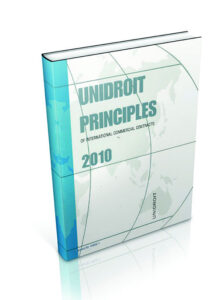In its Decision dated July 5, 2017 in Chua v. Colorite Marketing Corporation (G.R. Nos. 193969-70 and G.R. Nos. 194027-28), the Supreme Court ordered contractor Ka Kuen Chua Architectural (“KKCA”) to complete a construction project and shoulder 60% of its cost after a delay of 12 years. The Supreme Court found that KKCA breached its obligation in failing to provide sufficient soil protection measures, which was the proximate cause of the delay of the project, but it also did not overlook the fact that the project owner Colorite Marketing Corporation (“Colorite”) was also to be blamed for its inaction.
The dispute began in 2003 when Colorite and KKCA entered into a construction contract for a four-storey residential/commercial building in Makati City. Aside from KKCA, Colorite engaged the services of WE Construction Company (“WCC”) for the excavation works. WCC’s excavation, however resulted in erosion that caused damage to the adjacent property, prompting the Makati City Building Official to issue a Hold Order against the project. It took a couple of years before the adjacent property was restored, but even then the Hold Order against the project remained effective and the construction continued to be suspended.
Colorite sued KKCA with the Construction Industry Arbitration Commission (“CIAC”), which ruled that Colorite was entitled to its claim for liquidated damages but only 50% because it was equally responsible for the delay. CIAC also found that KKCA was entitled to some of its claims such as (a) its claim for soil protection works; (b) design fee; (c) restoration costs; and (d) costs for maintaining the project site. On review, the Court of Appeals affirmed the CIAC Final Award with modification.
Because of the conflicting findings of the CIAC and the Court of Appeals, the Supreme Court reviewed the evidence on record and eventually found KKCA primarily responsible for the delay of the project and under the obligation to complete the project despite the lapse of almost 12 years and the resulting increase in cost. The Supreme Court also found Colorite to be equally at fault for the protracted delay of the project and liable to share 40% of the increase in the construction costs.
When do the UNIDROIT Principles on International Commercial Contracts apply?
The UNIDROIT Principles (“Principles”) restate existing international contract law. They compile the rules of law adopted by the majority of countries and those that appear well suited for cross-border transactions. The Principles contain 11 chapters on various topics in the law of obligations and contracts.
The Principles were drafted by experts in contract law and international trade law representing the major legal systems of the world, acting under the auspices of the UNIDROIT, short for Institut Internationale pour l’ Unification du Droit Prive or the International Institute for the Unification of Private Law. The first edition of the Principles was released in 1994. Subsequent editions were released in 2004, 2010, and 2016. Although the Principles are “soft law” and hence not mandatory, they may, in some instances, be the source of rights and obligations. One instance is when the parties to a contract expressly agree that their contract shall be governed by the Principles. This is especially true in international commercial arbitration, where parties are generally permitted to choose “rules of law” other than national laws upon which the arbitrators will base their decisions. The parties may even authorize arbitrators to act as amiable compositeurs or ex aequo et bono.
Courts and arbitral tribunals may also apply the Principles if the parties stipulate that their contract be governed by general principles of law, the lex mercatoria or the like. For example, in Iran v. Cubic Defense Systems, the U.S. Federal Court of Appeals refused to vacate the foreign arbitral award for having exceeded the scope of the parties’ terms of reference, because the court found that the arbitral tribunal applied the Principles within the terms of the submission to arbitration, whereby the parties agreed to the complementary and supplementary application of general principles of international law and trade usages.
 Arbitrators may also apply the Principles when the parties have not chosen any law to govern their contract. Article 28 of the UNCITRAL Model Law of 1985 provides that in the absence of any designation of the applicable rules of law by the parties, the arbitral tribunal shall apply the law determined by the conflict of law rules that it considers applicable. However, such rules are flexible, allowing arbitrators to apply the rules of law they deem appropriate. Arbitrators may resort to anational or 6 supranational rules of law like the Principles where, for example, it can be inferred from the circumstances that the parties intended to exclude the application of any domestic law.
Arbitrators may also apply the Principles when the parties have not chosen any law to govern their contract. Article 28 of the UNCITRAL Model Law of 1985 provides that in the absence of any designation of the applicable rules of law by the parties, the arbitral tribunal shall apply the law determined by the conflict of law rules that it considers applicable. However, such rules are flexible, allowing arbitrators to apply the rules of law they deem appropriate. Arbitrators may resort to anational or 6 supranational rules of law like the Principles where, for example, it can be inferred from the circumstances that the parties intended to exclude the application of any domestic law.
Arbitrators have also resorted to the Principles in filling out gaps of the applicable national law. In their study, Brower and Sharpe cite seven arbitral awards and one court decision that made this use of the Principles.
The Principles may also be used to interpret or supplement international uniform law instruments. The most common example is the use of the Principles to interpret the Vienna Convention on the International Sale of Goods (CISG). Unlike the Principles, the CISG is a binding treaty; however, due to the related history of both instruments, the Principles are consulted to resolve issues in the interpretation of the CISG. Numerous courts and arbitral tribunals have consulted the Principles as an aid in interpreting other treaties, such as the 1958 New York Convention and the 1975 Inter-American Convention on Commercial Arbitration.
Finally, national legislators can use the Principles as a guide in drafting or amending their laws on international commercial contracts. The commentaries on the preamble of the Principles cite other possible uses of the principles, such as guidance for the drafting of contracts.
The Principles are among many developments in the emerging globalization of law itself, in response to the growing globalization of trade. While the advantages of transnational legal instruments like the Principles are being debated, with the increase in cross-border transactions and the need for commonly-accepted rules of law to govern the resolution of disputes arising from such transactions, the Principles and other similar transnational legal texts are expected to be relied on more widely in international commercial arbitration in the coming years.

